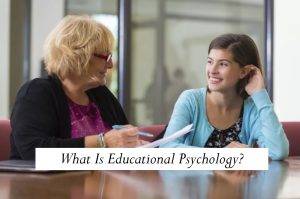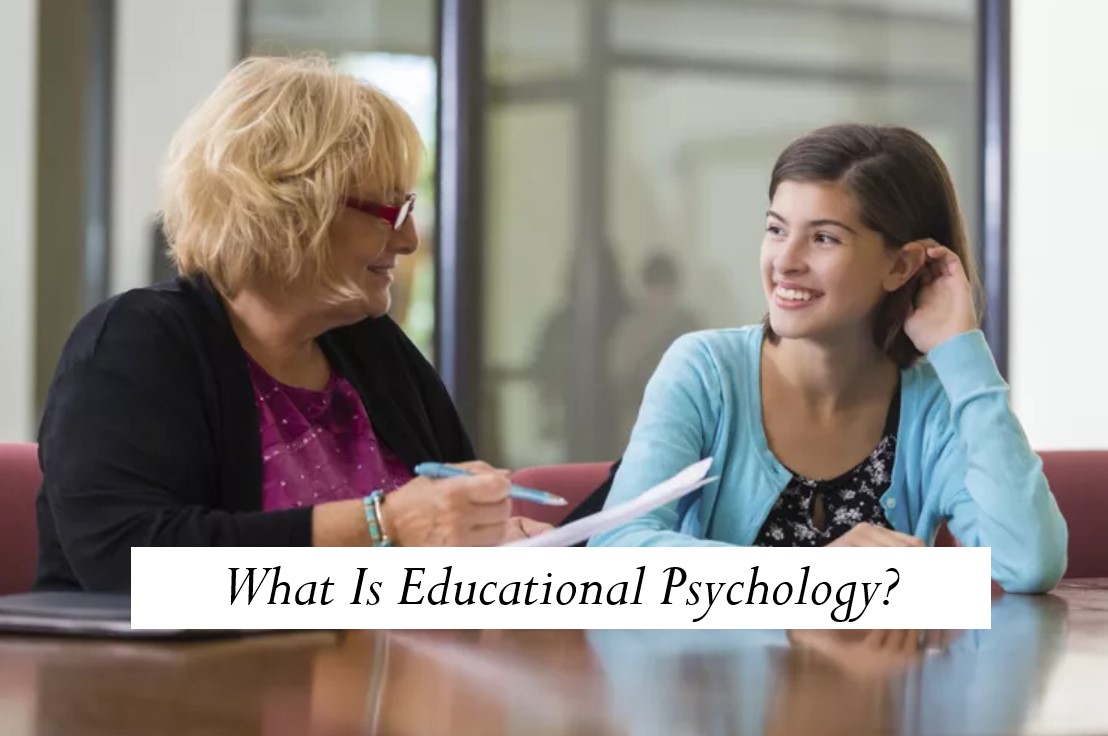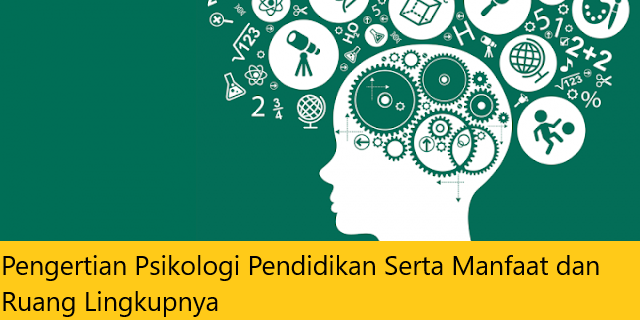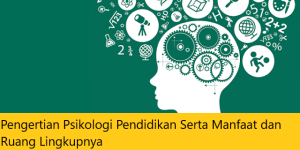
Educational psychology is the study of how people learn, including teaching methods, instructional processes, and individual differences in learning. It explores the cognitive, behavioral, emotional, and social influences on the learning process. Educational psychologists use this understanding of how people learn to develop instructional strategies and help students succeed in school.
This branch of psychology focuses on the learning process of early childhood and adolescence. However, it also explores the social, emotional, and cognitive processes that are involved in learning throughout the entire lifespan.
The field of educational psychology incorporates a number of other disciplines, including developmental psychology, behavioral psychology, and cognitive psychology. Approaches to educational psychology include behavioral, developmental, cognitive, constructivist, and experiential perspectives.
This article discusses some of the different perspectives taken within the field of educational psychology, topics that educational psychologists study, and career options in this field.
0 seconds of 2 minutes, 7 secondsVolume 90%
8 Things to Know About Educational Psychology
Perspectives in Educational Psychology
As with other areas of psychology, researchers within educational psychology tend to take on different perspectives when considering a problem. These perspectives focus on specific factors that influence learning, including learned behaviors, cognition, experiences, and more.
The Behavioral Perspective
This perspective suggests that all behaviors are learned through conditioning. Psychologists who take this perspective rely firmly on the principles of operant conditioning to explain how learning happens.1
For example, teachers might reward learning by giving students tokens that can be exchanged for desirable items such as candy or toys. The behavioral perspective operates on the theory that students will learn when rewarded for “good” behavior and punished for “bad” behavior.
While such methods can be useful in some cases, the behavioral approach has been criticized for failing to account for attitudes, emotions, and intrinsic motivations for learning.
The Developmental Perspective
This perspective focuses on how children acquire new skills and knowledge as they develop.2 Jean Piaget’s stages of cognitive development is one example of an important developmental theory looking at how children grow intellectually.3
By understanding how children think at different stages of development, educational psychologists can better understand what children are capable of at each point of their growth. This can help educators create instructional methods and materials aimed at certain age groups.
The Cognitive Perspective
The cognitive approach has become much more widespread, mainly because it accounts for how factors such as memories, beliefs, emotions, and motivations contribute to the learning process.4 This theory supports the idea that a person learns as a result of their own motivation, not as a result of external rewards.
Cognitive psychology aims to understand how people think, learn, remember, and process information.
Educational psychologists who take a cognitive perspective are interested in understanding how kids become motivated to learn, how they remember the things that they learn, and how they solve problems, among other topics.
The Constructivist Approach
This perspective focuses on how we actively construct our knowledge of the world.5 Constructivism accounts for the social and cultural influences that affect how we learn.
Those who take the constructivist approach believe that what a person already knows is the biggest influence on how they learn new information. This means that new knowledge can only be added on to and understood in terms of existing knowledge.
This perspective is heavily influenced by the work of psychologist Lev Vygotsky, who proposed ideas such as the zone of proximal development and instructional scaffolding.
Experiential Perspective
This perspective emphasizes that a person’s own life experiences influence how they understand new information.6 This method is similar to constructivist and cognitive perspectives in that it takes into consideration the experiences, thoughts, and feelings of the learner.
This method allows someone to find personal meaning in what they learn instead of feeling that the information doesn’t apply to them.
Recap
Different perspectives on human behavior can be useful when looking at topics within the field of educational psychology. Some of these include the behavioral perspective, the constructivist approach, and the experiential perspective.
Topics in Educational Psychology
From the materials teachers use to the individual needs of students, educational psychologists delve deep to more fully understand the learning process. Some these topics of study in educational psychology include:
- Educational technology: Looking at how different types of technology can help students learn
- Instructional design: Designing effective learning materials
- Special education: Helping students who may need specialized instruction7
- Curriculum development: Creating coursework that will maximize learning
- Organizational learning: Studying how people learn in organizational settings, such as workplaces
- Gifted learners: Helping students who are identified as gifted learners8
Careers in Educational Psychology
Educational psychologists work with educators, administrators, teachers, and students to analyze how to help people learn best. This often involves finding ways to identify students who may need extra help, developing programs for students who are struggling, and even creating new learning methods.
Many educational psychologists work with schools directly. Some are teachers or professors, while others work with teachers to try out new learning methods for their students and develop new course curricula. An educational psychologist may even become a counselor, helping students cope with learning barriers directly.
Other educational psychologists work in research. For instance, they might work for a government organization such as the U.S. Department of Education, influencing decisions about the best ways for kids to learn in schools across the nation.
In addition, an educational psychologist work in school or university administration.9 In all of these roles, they can influence educational methods and help students learn in a way that best suits them.
A bachelor’s degree and master’s degree are usually required for careers in this field; if you want to work at a university or in school administration, you may need to complete a doctorate as well.
Recap
Educational psychologists often work in school to help students and teachers improve the learning experience. Other professionals in this field work in research to investigate the learning process and to evaluate programs designed to foster learning.
History of Educational Psychology
Educational psychology is a relatively young subfield that has experienced a tremendous amount of growth. Psychology did not emerge as a separate science until the late 1800s, so earlier interest in educational psychology was largely fueled by educational philosophers.10
Many regard philosopher Johann Herbart as the father of educational psychology.11
Herbart believed that a student’s interest in a topic had a tremendous influence on the learning outcome. He believed teachers should consider this when deciding which type of instruction is most appropriate.
Later, psychologist and philosopher William James made significant contributions to the field. His seminal 1899 text “Talks to Teachers on Psychology” is considered the first textbook on educational psychology.12
Around this same period, French psychologist Alfred Binet was developing his famous IQ tests.13 The tests were originally designed to help the French government identify children who had developmental delays and create special education programs.
In the United States, John Dewey had a significant influence on education.14 Dewey’s ideas were progressive; he believed schools should focus on students rather than on subjects. He advocated active learning, arguing that hands-on experience was an important part of the process.
More recently, educational psychologist Benjamin Bloom developed an important taxonomy designed to categorize and describe different educational objectives.15 The three top-level domains he described were cognitive, affective, and psychomotor learning objectives.
Significant Figures
Throughout history, a number of additional figures have played an important role in the development of educational psychology. Some of these well-known individuals include:
- John Locke: Locke is an English philosopher who suggested the concept of tabula rasa, or the idea that the mind is essentially a blank slate at birth.16 This means that knowledge is developed through experience and learning.
- Jean Piaget: A Swiss psychologist who is best known for his highly influential theory of cognitive development, Jean Piaget’s influence on educational psychology is still evident today.
- B.F. Skinner: Skinner was an American psychologist who introduced the concept of operant conditioning, which influences behaviorist perspectives.17 His research on reinforcement and punishment continues to play an important role in education.
Recap
Educational psychology has been influenced by a number of philosophers, psychologists, and educators. Some thinkers who had a significant influence include William James, Alfred Binet, John Dewey, Jean Piaget, and Benjamin Bloom.
A Word From Verywell
Educational psychology offers valuable insights into how people learn and plays an important role in informing educational strategies and teaching methods. In addition to exploring the learning process itself, different areas of educational psychology explore the emotional, social, and cognitive factors that can influence how people learn. If you are interested in topics such as special education, curriculum design, and educational technology, then you might want to consider pursuing a career in the field of educational psychology.
Frequently Asked Questions
- What can you do with a masters in educational psychology?
A master’s in educational psychology can prepare you for a career working in K-12 schools, colleges and universities, government agencies, community organizations, and counseling practices. A career as an educational psychologist involves working with children, families, schools, and other community and government agencies to create programs and resources that enhance learning.
- What is the primary focus of educational psychology?
The primary focus of educational psychology is the study of how people learn. This includes exploring the instructional processes, studying individual differences in how people learn, and developing teaching methods to help people learn more effectively.
- Why is educational psychology important?
Educational psychology is important because it has the potential to help both students and teachers. It provides important information for educators to help them create educational experiences, measure learning, and improve student motivation.
- How does educational psychology help teachers?
Educational psychology can aid teachers in better understanding the principles of learning in order to design more engaging and effective lesson plans and classroom experiences. It can also foster a better understanding of how learning environments, social factors, and student motivation can influence how students learn.



